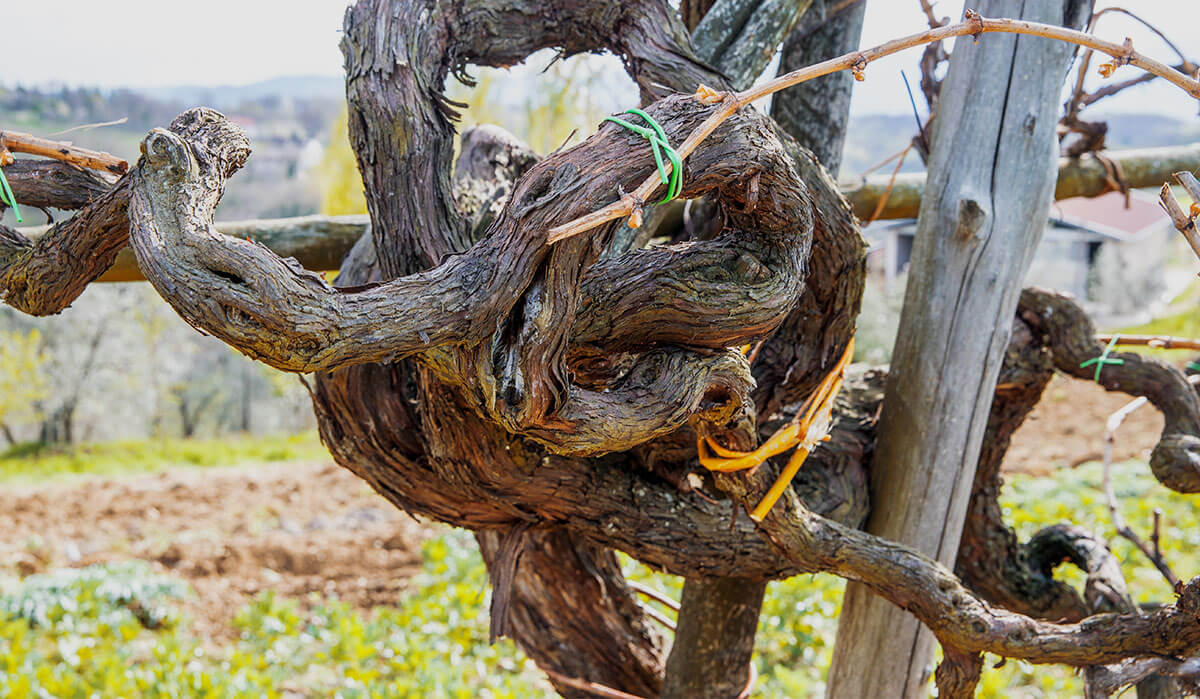Black grape variety, once widespread throughout the Reatina area, whose existence is documented since the XIX century in the Rieti Annual Agrarian Board of 1879: it is also known as Castelfranco Cesenese. Medium vigorous variety, loose bunch with one or two wings, spheroidal grape, very pruinose bluish black. It gives a ruby red wine with violet reflections, full bodied, fresh and balanced. The vine has been registered in the National Register of vine varieties. This clone was reproduced from a 170 year old surviving plant.
History
Historically present mainly on the sunny hills of Castelfranco and the neighbouring municipality of Cantalice, it was made and sold throughout the whole territory of Rieti. In the archives of Castelfranco Church historical finds have been found testifying to the presence of this vine and in the same archives documents attesting the marketing of Cesenese wine are still kept. These documents, following an exhausting research and studies in agreement with ARSIAL, COPAGRI and a city committee, allowed the recognition of this variety as an autochthonous strain, well distinguished from the Common Cesenese, and its inclusion in the National list of wines since 2017. At the moment, at Roberto Colasanti’s farm in Castelfranco, it is possible to view a vine over 100 years old, the original one from which it was possible to trace back to the DNA and obtain the multiplication of the strains. It goes without saying that this recognition has multiplied the attention given to this ancient vine by the local farms that planted it to obtain excellent wines in a few years.
Organoleptic characteristics
Ruby red colour, not particularly intense, clear and with brilliant reflections. Strong notes of wild berries, cocoa powder and black pepper on the nose. Balanced, with good flavour, medium persistent and slightly tannic.
Production processes
The grapes are manually picked in the third decade of October and then directly brought to the farm cellar where they are gently pressed. The must is fermented with the skins for 15 days at a controlled temperature (18°-22°). Ageing for 12 months in 20 hl barrels and in bottles for 6 months.



